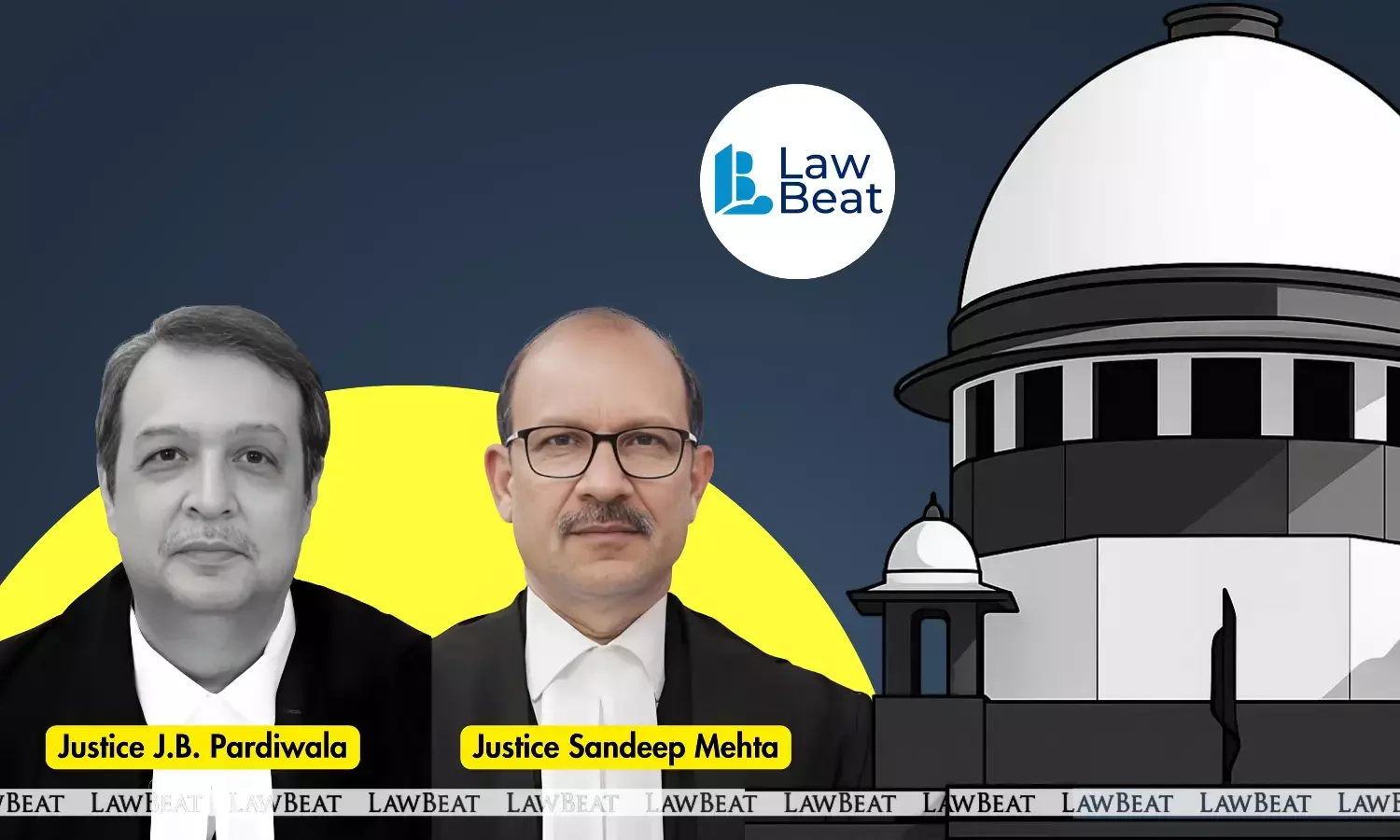SC Slams Delay in Uploading Judgments: Tells High Courts to Deliver Reasoned Orders Within Three Months

The case relates to construction of Ambience Mall and other commercial structures on land measuring nearly 19 acres in Nathupur village along the Delhi-Jaipur National Highway in Gurugram.
The Supreme Court has recently expressed grave concern over the practice of High Courts pronouncing only the operative part of judgments and uploading reasoned orders months or even years later.
Warning that such delays undermine transparency and prejudice litigants, the Court reiterated that judgments must be made available to parties within three months of being reserved.
The Bench of Justice J.B. Pardiwala and Justice Sandeep Mehta was hearing an appeal arising out of a Punjab and Haryana High Court decision in a criminal case.
The High Court had dismissed the appellant’s challenge to his conviction in February 2016, but uploaded the detailed judgment only in July 2018; two years and five months later.
The appellant-convict argued before the Supreme Court that such extraordinary delay rendered the High Court’s order unsustainable and sought to have his conviction set aside on that ground, apart from other contentions on merits.
While acknowledging the seriousness of the issue, the Supreme Court refused to interfere with the conviction, holding that the delay in uploading the judgment alone cannot nullify an otherwise well-reasoned order. The Court noted that both the trial court and the High Court had relied on the direct testimony of two eyewitnesses, which remained credible and unimpeached.
“We have reached the conclusion that despite there being a delay of 2 years 5 months in uploading the Judgment, the oral testimony of the two eyewitnesses inspires confidence and there is nothing on record in the form of any intrinsic evidence to render their testimony doubtful,” the Bench observed.
At the same time, the Court issued a strong caution to the High Courts, stressing that such practices compromise justice delivery. “Over a period of time, it has been the practice of few High Courts to pronounce the operative part of the order without the reasoned judgment and after a substantial length of time the reasoned judgment is uploaded. This practice has been deprecated by this Court in many of its judgments and orders. This practice of the High Courts deprives the aggrieved party of the opportunity to seek further judicial redressal more particularly in criminal matters wherein the appeal is dismissed affirming the judgment and order of conviction passed by the trial court,” the Court said.
The Bench reiterated the principle laid down in Anil Rai v. State of Bihar [(2001), where it was directed that judgments should ordinarily be delivered within three months from the date of reserving.
The Court noted that guidelines from Anil Rai remain binding and must be scrupulously followed.
The judgment also referred to Ratilal Jhaverbhai Parmar v. State of Gujarat, where this Court had held that reasoned judgments should ideally be uploaded within two to five days of pronouncing the operative portion. Similarly, in Ravindra Pratap Shahi v. State of U.P., it was directed that if a judgment is not delivered within three months, the Registrar must place the matter before the Chief Justice of the High Court for appropriate orders.
Expressing hope that such lapses would not recur, the Bench observed: “We hope that we may not have to come across any matter wherein there is a delay at the end of the High Court in uploading the reasoned order more particularly after the operative part of the judgment is pronounced.”
Ultimately, the Supreme Court dismissed the appeal but appended a cautionary note, emphasizing that timely delivery and uploading of reasoned judgments are integral to justice.
In a related news, in May, taking a stern view of the Jharkhand High Court’s prolonged delay in delivering judgments after reserving them for years, the Supreme Court had called for reports from all high courts within a month regarding cases where verdicts were reserved on or before January 31. A Division Bench of Justice Surya Kant and N Kotiswar Singh had described the prolonged non-delivery of judgments as a "very disturbing issue" and indicated that it intends to establish certain mandatory guidelines for high courts. "Let us see. Honestly speaking it is a very disturbing issue but we don't know the circumstances - why it has happened; but we would like to definitely lay down some mandatory guidelines. It cannot be allowed to happen like this," the Bench had remarked.
Case Title: Rajan v. State of Haryana
Order Date: September 2, 2025
Bench: Justice JB Pardiwala and Justice Sandeep Mehta
